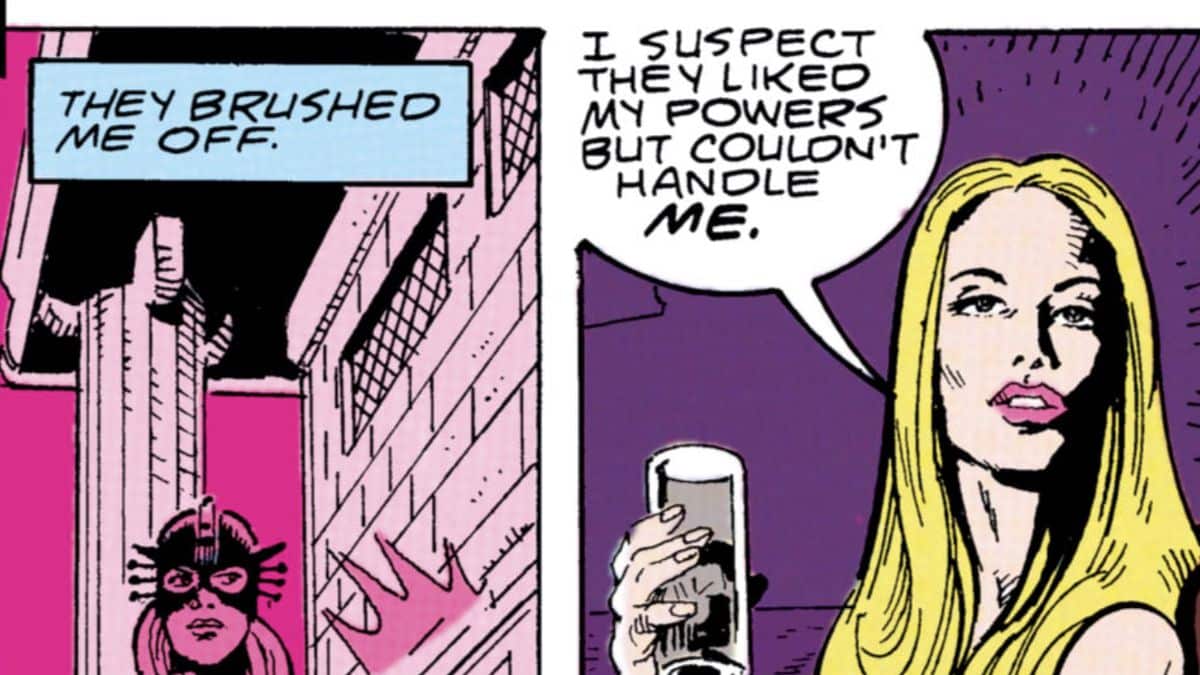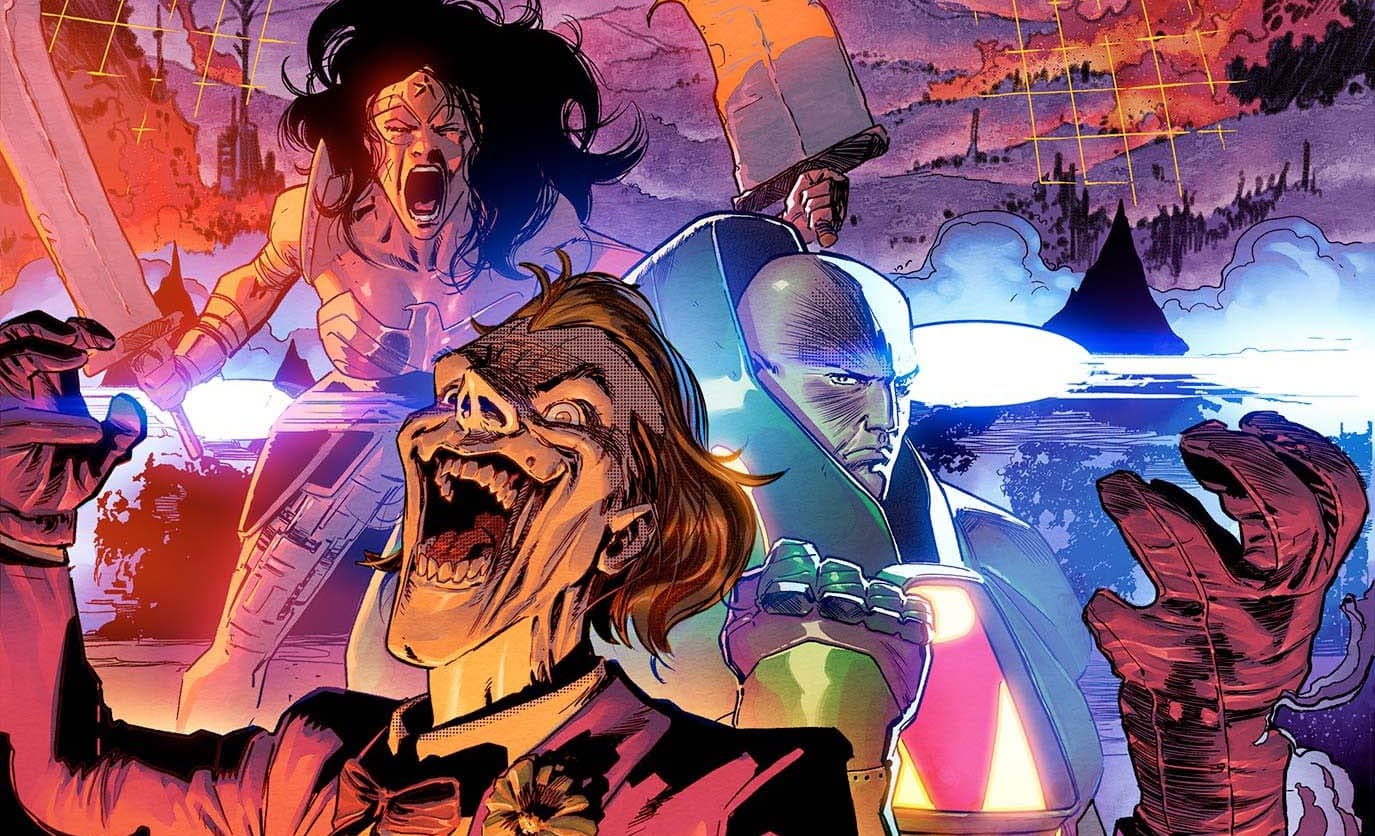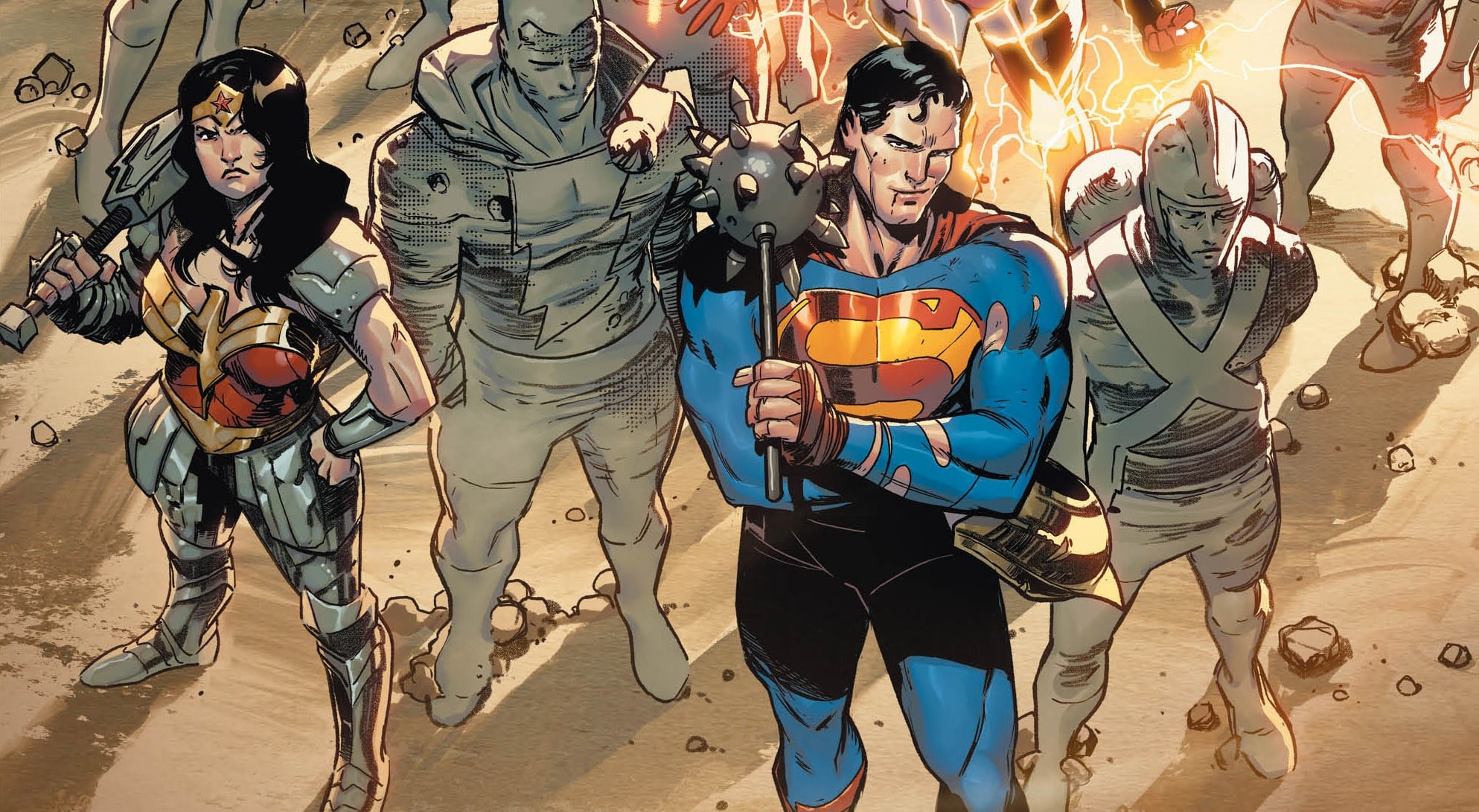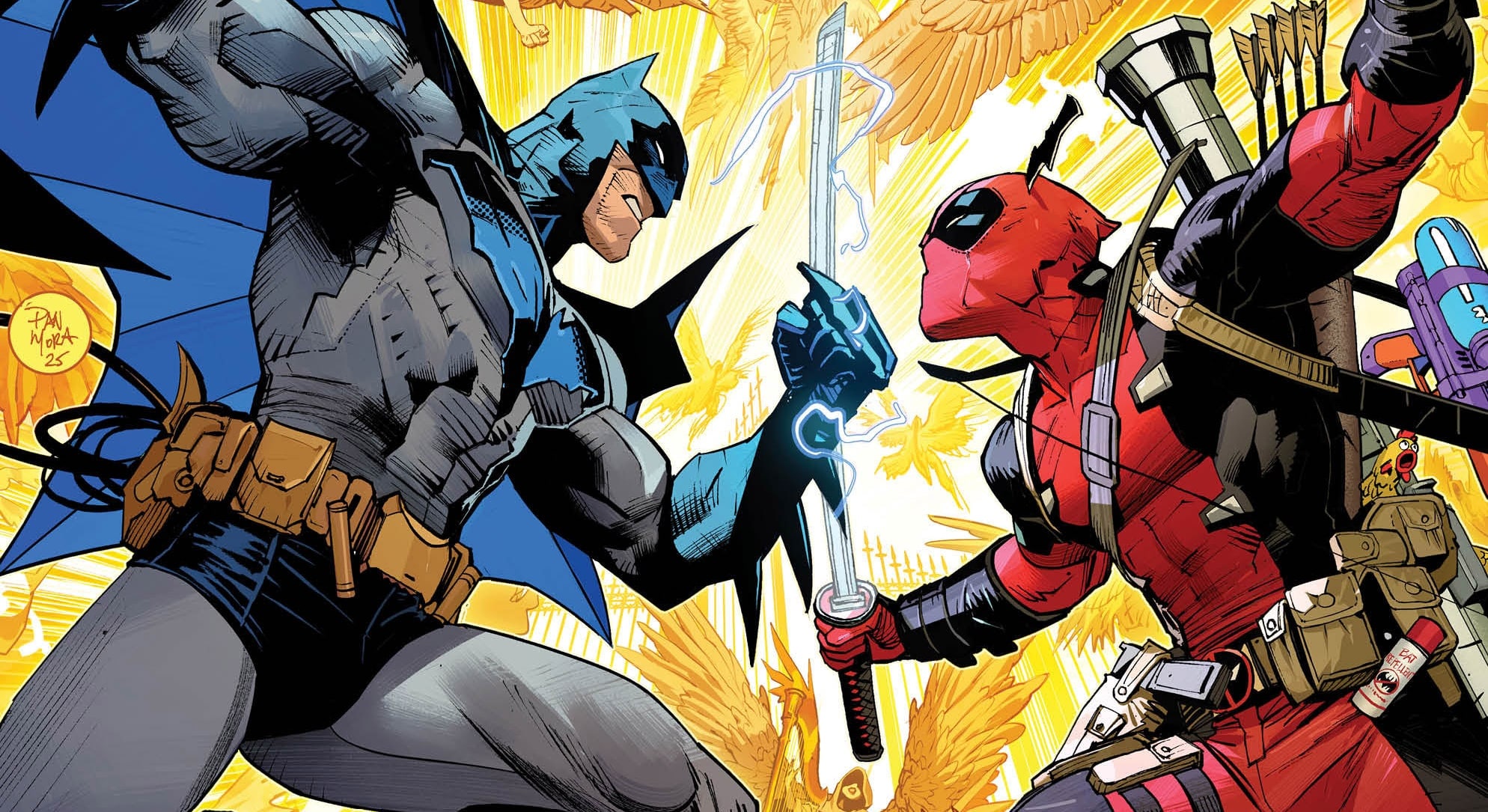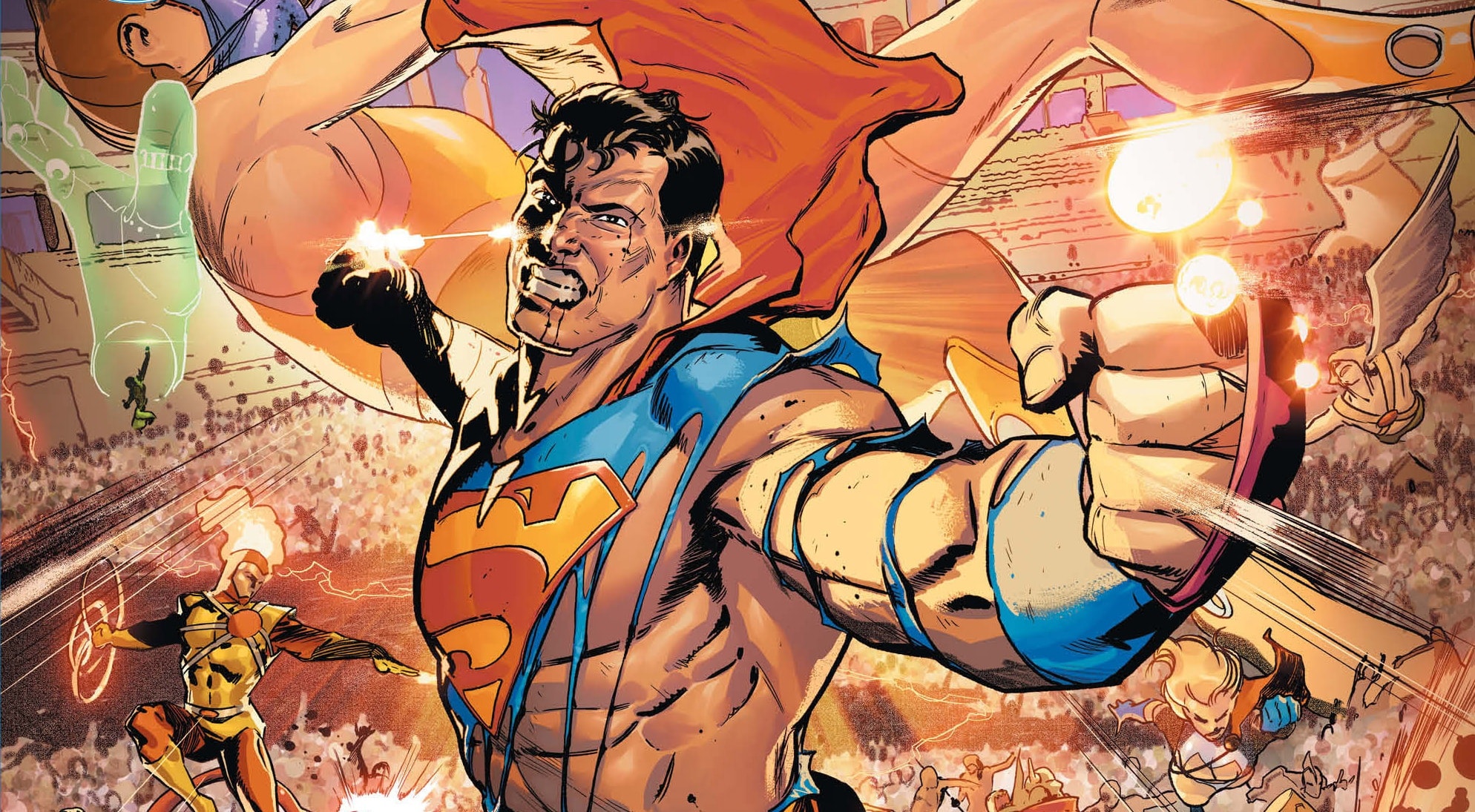Who’s afraid of a little trans history? Maybe you should be: comics’ trans elder flowers, posthumously, in one of DC’s Pride specials, while the other looks to younger readers with stories about queer teens. DC Pride: A Celebration of Rachel Pollack, writing by Rachel Pollack and Joe Corallo, line art by Scott Eaton, Tom Sutton, Michael Allred and Rye Hickman, colors by Tom Ziuko and Laura Allred, letters by John Workman and Clem Robins. DC Pride 2024, writing by Al Ewing, Ngozi Ukazu, Gretchen Felker-Martin, Jamila Rowser, Jarrett Williams, Nicole Maines, Calvin Kasulke, Melissa Marr and Phil Jimenez, art by Stephen Byrne, Ngozi Ukazu, Claire Roe, Oneilljones (all one word), DJ Kirkland, Jordan Gibson, Len Gogou, Jenn St-Onge, and Giulio Macaoine, additional colors by Triona Farrell, Marissa Louise, and Jeremy Lawson, letters by Aditya Bidikar, Lucas Gatton, Jodie Troutman, Lucas Gattoni, Ariana Maher, Morgan Martinez and Andworld Design, ad Frank Cvetkovic. Whew!

How did the science fiction writer and Tarot expert Rachel Pollack (1945-2023) become the first out trans writer to work on a Big Two comic, creating DC’s first trans superhero? She knew and had worked with Neil Gaiman, and knew DC editors, and asked to work on Doom Patrol if Grant Morrison ever left the title; when he did, in 1993, she got the job. She made the already trippy, insistently metafictional team book into a vehicle for serious stories about trauma, shame, resilience, gender and found family, something Morrison’s following– and Gaiman’s– ought to have read: Pollack’s Doom Patrol lasted two years before the book’s cancellation amid the comic book industry collapse of the late 1990s. Her legacy has lasted… well, it’s still here.
As is Doom Patrol #70, the leadoff story and by far the best thing in DC’s belated but worthy tribute to the writer. It’s the debut of Pollack’s delightful Kate Godwin, Coagula, who turns liquids into solids and vice versa. Symbolizing fluidity of all kinds, and blasé about life’s slings and arrows, Kate once “applied for the Justice League. “They brushed me off. I suspect they liked my powers but couldn’t handle me.” Kate befriends Doom Patrol regulars George and Marion, who go about wrapped in mummy bandages– which they can manipulate to fight baddies– and who also control purse-based ghosts.
She also ends up fighting the ridiculous bespoke villain Codpiece, an incel with a helmet on his head and a big, hard raygun attached to his crotch. Kate tricks Codpiece into letting her get close enough to liquefy his, uh, raygun– she turns his hardness into gender fluid!– and all ends as well as it can for the Doom Patrol. Better yet, Pollack salts the comic– well-drawn by Eaton; fast-paced, and easy to follow– with jokes that double as moments of recognition, showing how well- and ill-meaning cis people treated The Trans in the 1990s, and afterwards. A stranger approaches George and Marion on the street to say “You two are very brave”; Robotman remembers how kids teased him for weakness; and Kate puts on a ridiculous frog mask in order to look less intimidating (to Codpiece) than the badass that her true face would reveal.
Pollack’s Doom Patrol now exists as a hardback omnibus, as well as on DC Infinite; how cool would it be if this reprint sent new readers to the rest of her Doom Patrol stories? How cool would it get if Joe Corallo and Rye Hickman’s fun new Coagula story– in which Kate journeys through false memories in Robotman’s mind and back to the land of the living– augured a new run of Doom Patrol comics? The rest of this celebration reprints a long story from the 1990s Vertigo Visions anthology series, in which Pollack reanimates Joe Simon and Al Bare’s notorious antihero Brother Power the Geek, a life-size humanoid dummy who can change sizes, zap people or inhabit mannequins and dolls. The Allreds bring their best, cartooniest A-game, but Pollack’s story follows the already hallucinatory characters through a hard-to-disentangle set of past lives, extra bodies, and allegories for the Me Decade and the greed-is-good 80s, circling uncomfortably back to the creepy circus where the Geek began. It’s not Pollack’s best work, but who cares? Writers have to take risks. Some of hers turned out well. Go read Doom Patrol.

It’s writers like Pollack– unafraid to shock, to get weird, to aim for the readers she wants rather than for as many as she can get– who expand the space of what comics can go, and the space of who people can feel free to be. And so it’s writers like Pollack whom we can credit for the altogether friendlier– PG, if you like, or middle grade– space that most of the stories in the other new DC Pride book occupy. There are eight, with writers including Al Ewing and trans horror novelist Gretchen Felker-Martin. None are Pollack. Few innovate, and that’s OK. Sometimes you just want to see Jackson Hyde, the new Aquaman, entertain his new, hot situationship with a “boy-who-is-my-romantic-friend”; sometimes you want to see Jackson meet Orion from the New Gods, two sons of villains (or Scions, in Masks) made good. And sometimes you want to see that story’s creator, Ngozi Ukazu of Check, Please! fame, write a YA graphic novel about the New Gods for DC. Guess what: she will.
TV actor Nicole Maines, who played Nia Nal (Dreamer) on Supergirl, has written Dreamer for DC comics before, and she’s figured out how to pace four-color stories: she, artist Jordan Gibson and letterer Ariana Maher tell a sympathetic if unsurprising tale about how Dreamer found her powers, and about how those future-foretelling powers interact with Nia’s trans identity, her accepting mom, and her less-than-accepting older sister. Ewing, with Stephen Byrne on art and Aditya Bidikar on letters, turns in a cosmically Ewing-esque short story set in the world of Starman, as notable for its main couple’s bright blue hues– and for their 1970s rockstar demeanor– as for its slender but serviceable monster plot.

The best thing among all the new DC Pride stories, though, isn’t a story about superheroes at all, or not directly: it’s a story about stories about superheroes, a short memoir with first-person narration by longtime DC artist Phil Jimenez. Giulio Macaione’s line art (with Frank Cvetkovic’s letters) use restrained lines and half-tones for the comic-book universes Jimenez imagines, darker inks for Jimenez as a gay or proto-gay boy and as the sensitive, bearded, successful comics artist he became. He writes about re-making Wonder Woman’s Paradise Island, and then about watching his own Amazons get demolished and remade by later creators: “Utopias rarely fare well for very long in shared universes. Or anywhere, really… And if we do it right, we’ll get a million more versions of Paradise.” Bingo.
In between the stories we see, not paid ads from for-profits or promos for new DC books, but promotions for real-life queer do-gooder organizations like Family Equality and Translatin@ Coalition. Good job. Good idea. Oh, and by the way: Jimenez mentions how he as a gay kid found his own Utopian space first and last in the Levitz and Giffen Legion of Superheroes, in which “some of the least queer people I know” made a ”queer future” with “beautiful men in capes and corsets… and fabulous women, fierce a.f… fighting entropic time lords and emerald empresses in a hard sci-fi universe where all the evil ‘isms’ no longer exist.” It’s like Jimenez met me back when I was a girl who thought I was a boy. We could have read “The Great Darkness Saga” together. Or re-re-re-booted the Legion for the next generation of queer and trans readers. Maybe somebody still can.
Stephanie Burt is Professor of English at Harvard. Her podcast about superhero role playing games is Team-Up Moves, with Fiona Hopkins; her latest book of poems is We Are Mermaids. Her nose still hurts from that thing with the gate.

